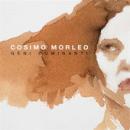They said Alan
they said listen, Alan
they said listen, Alan
you’ve got a simple decision
a simple choice
but it’s one or the other
so I had a choice
I had a choice
I had a choice
but they’ve been making my mind up
they’ve been making my body
into something it’s not
the algorithm was nothing special
I just took a bite
the code was really nothing much
and I just took a bite
they said it’s not right
they said it’s not right
they said it’s not right
and we can’t let you do that
we can’t let you get away with that
so I took a bite
I took a bite
I took a bite
because they’ve been making my mind up
they’ve been making my body
into something it’s not
the algorithm was nothing special
I just took a bite
they said listen, Alan
they said listen, Alan
you’ve got a simple decision
a simple choice
but it’s one or the other
so I had a choice
I had a choice
I had a choice
but they’ve been making my mind up
they’ve been making my body
into something it’s not
the algorithm was nothing special
I just took a bite
the code was really nothing much
and I just took a bite
they said it’s not right
they said it’s not right
they said it’s not right
and we can’t let you do that
we can’t let you get away with that
so I took a bite
I took a bite
I took a bite
because they’ve been making my mind up
they’ve been making my body
into something it’s not
the algorithm was nothing special
I just took a bite
Contributed by donquijote82 - 2013/12/26 - 23:32
"Non solo Turing, è ora di riabilitare 50 mila gay inglesi"
Non solo Turing. L'Inghilterra dello spettacolo e dell'arte si muove per chiedere che il governo riabiliti i quasi 50 mila uomini condannati per "atti indecenti", come fino a metà degli anni '60 qui veniva ancora classificata l'omosessualità. Quindicimila di loro sono probabilmente ancora vivi. Tra quelli ormai deceduti c'è il grande matematico Alan Turing, decifratore del Codice Enigma dei nazisti durante la Seconda guerra mondiale e considerato il padre del computer, che al carcere preferì la pena della castrazione chimica e, dopo averla subita, nel 1954 finì per suicidarsi.
...Repubblica
Non solo Turing. L'Inghilterra dello spettacolo e dell'arte si muove per chiedere che il governo riabiliti i quasi 50 mila uomini condannati per "atti indecenti", come fino a metà degli anni '60 qui veniva ancora classificata l'omosessualità. Quindicimila di loro sono probabilmente ancora vivi. Tra quelli ormai deceduti c'è il grande matematico Alan Turing, decifratore del Codice Enigma dei nazisti durante la Seconda guerra mondiale e considerato il padre del computer, che al carcere preferì la pena della castrazione chimica e, dopo averla subita, nel 1954 finì per suicidarsi.
...Repubblica
Allora chi erano Hugo Steinhaus http://it.wikipedia.org/wiki/Hugo_Steinhaus, Stanisław Ulam http://it.wikipedia.org/wiki/Stanislaw_Ulam o un Konstantin Ciołkowski http://pl.wikipedia.org/wiki/Konstanti.... Forse erano froci, come certo Leonardo Da Vini, Collodi, Fermi e compania bella. Ma che discorsi sono, cazzo...
Era gente di cui la nostra generazione non riesce neanche avvicinarsi minimamente... gente che ancora riusciva a pensare liberamente. Tutto qua.
Era gente di cui la nostra generazione non riesce neanche avvicinarsi minimamente... gente che ancora riusciva a pensare liberamente. Tutto qua.
Krzysiek - 2015/4/17 - 01:13
×
![]()
Note for non-Italian users: Sorry, though the interface of this website is translated into English, most commentaries and biographies are in Italian and/or in other languages like French, German, Spanish, Russian etc.








The Big Other
di Lorenzo Masetti
Lo scorso 24 dicembre, con la tempestività degna di un papa, la regina Elisabetta ha concesso l'assoluzione reale ad Alan Turing, uno dei più importanti scienziati del '900, uno dei padri dell'informatica.
Nel 1952 Turing aveva denunciato alla polizia un furto subito in casa grazie alla complicità di Arnold Murray. Durante l'indagine, Turing ammise di essere omosessuale e che Murray era stato il suo amante. Fu per questo imputato di "grave indecenza e perversione sessuale" (l'omosessualità era un reato nel Regno Unito dell'epoca), la stessa accusa contestata a Oscar Wilde più di cinquant'anni prima. Si difese affermando che non scorgeva niente di male nelle sue azioni. Fu condannato a un "trattamento ormonale" che gli causò importanti alterazioni fisiche (la crescita del seno) e l'impotenza. Morì misteriosamente due anni dopo, si dice per aver mangiato una mela avvelenata, come nella favola di Biancaneve, da lui adorata fin da bambino.
Questo fu il trattamento riservato dalla Gran Bretagna a una delle migliori menti del secolo, che aveva avuto un ruolo determinante nella vittoria sui nazisti durante la Seconda Guerra Mondiale.
L'esercito tedesco utilizzava un complicato sistema crittografico, chiamato Enigma, che permetteva di trasmettere messaggi cifrati. La macchina crittografica somigliava a una normale macchina da scrivere in cui si digitava il messaggio cifrato. Un complicato sistema di tre dischi cablati con 26 contatti per lato (quante le lettere dell'alfabeto tedesco) permetteva, una volta posizionati i rotori secondo l'opportuna chiave, di ricostruire il messaggio in chiaro, le cui lettere venivano illuminate su un'apposita "tastiera luminosa" di output. La chiave cambiava ogni giorno secondo un cifrario segreto che veniva distribuito a tutte le postazioni dotate di Enigma. In realtà la chiave del giorno veniva utilizzata solo per trasmettere una prima parte convenzionale, che determinava poi la posizione dei rotori da utilizzare per decifrare il messaggio vero e proprio. Questa debolezza permise al matematico polacco Rejewski di sviluppare un metodo matematico che permetteva di ridurre i milioni di chiavi a "solo" 17.576. Questo numero ridotto rendeva il problema abbordabile in un tempo ragionevole e permise ai servizi segreti polacchi di costruire la macchina detta Bomba che provava le varie chiavi indovinando quella giusta.
In seguito i tedeschi perfezionarono il metodo e il lavoro di decrittazione fu trasferito agli inglesi.
Il giovane Turing si rese conto che poteva usare parole che sicuramente apparivano in un certo messaggio per decifrare la chiave del giorno. Per esempio alle 6 di mattina i tedeschi inviavano sempre un messaggio sulle condizioni meteo che sicuramente conteneva le parole "tempo", "sole", "nubi" eccetera. Basandosi su queste parole si poteva decifrare la chiave del giorno e quindi tutti i messaggi trasmessi nelle successive ventiquattro ore.
Grazie al lavoro del gruppo, gli inglesi conoscevano in anticipo gli spostamenti dei sottomarini tedeschi e potevano evitare la distruzione delle navi inglesi. Probabilmente senza questo lavoro di intelligence la guerra sarebbe durata qualche anno in più, e forse il suo esito avrebbe potuto essere diverso.
Ma questi meriti non salvarono il brillante matematico inglese dalla persecuzione, meno di dieci anni dopo.
Turing è passato alla storia per aver ideato il famoso test per determinare se una macchina sia in grado di pensare. Morì vittima non dell'intelligenza delle macchine, ma della stupidità degli umani.